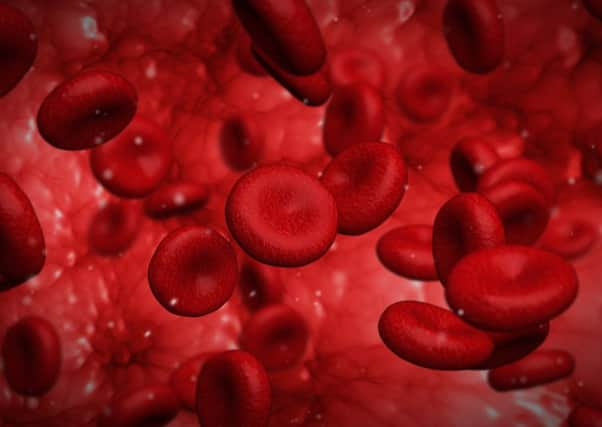Experts '˜optimistic' over killing rare blood cancer cells


Existing treatments for chronic myeloid leukaemia (CML) can only keep the disease at bay, which cost the NHS more than £500 million a year and can cause serious side effects.
Experts from Glasgow University say they have found a safe drug that can target and eliminate the stem cells that produce the cancer, according to new research published today in the Cancer Discovery journal.
Advertisement
Hide AdAdvertisement
Hide AdA clinical trial to test the drug on humans will start as early as next year, according to lead author Dr David Vetrie.
Dr Vetrie, who is based at the Wolfson Wohl Cancer Research Centre in Glasgow, told The Scotsman: “We are cautiously optimistic that we have a safe drug that’s targeting the cells we want to kill.
“CML is only one example of cancers that are caused by stem cells. This is the first example of a disease where we can kill the stem cells and then kill the cancer.
“It also looks raises the question of if we can do this in one cancer then maybe we can do it in others.”
The drug works by inhibiting the activity of a protein called EZH2, which has previously been shown to be important for the survival of other types of cancer cells but had never before been studied in CML.
Taken in the form of a pill, the drug is already in clinical trials for other cancers.
It comes after the same team in Glasgow reported in the journal Nature that a completely different drug combination was also highly effective at targeting CML stem cells.
Diana Jupp, director of Patient Experience at Bloodwise charity, said: “In recent years, thanks to research, this once usually fatal leukaemia has been transformed into a manageable condition for most patients.
“These promising findings could lead to drugs that provide a permanent cure by targeting the cancer stem cells that drive this disease, which is a hugely exciting prospect.”